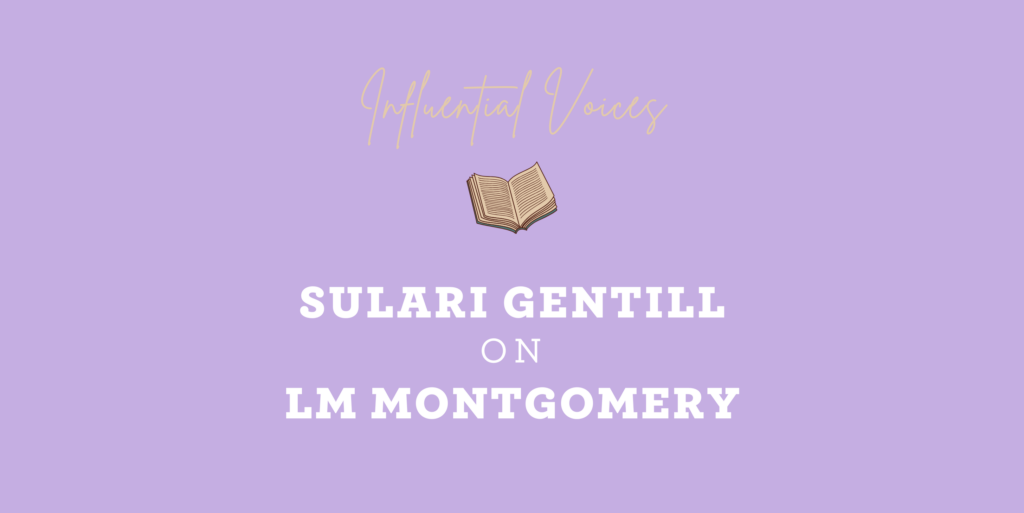
Until I was well into my 20s I was determined to migrate to Canada, to Prince Edward Island to be precise. I was not alone. Indeed I suspect Canada has a version of border patrol dedicated to dealing with the would-be Anne of Green Gables immigrants.
As a child I was a voracious and eclectic reader. I had read many accounts of glorious places, of natural beauty and idyllic settings, and yet it was only the books of LM Montgomery that evoked in me such a fierce and dedicated love of place. A place I had visited only through her words.
I first encountered Anne of Green Gables on the shelves of the Annerley Public Library. I recall that I borrowed the book reluctantly as the title seemed too childish for my sophisticated 10-year- old self. Sometime before it was due, I deigned to actually read the novel and then I had my father drive me back to the library as soon as naggably possible. Borrowing every LM Montgomery book I could in my own name, I then maxed out my sister’s library card as well. Fortunately Montgomery was prolific with a body of work that included 20 novels and over 500 short stories. I read every one I could get my hands on.
Born on Prince Edward Island, Montgomery’s early life was in some ways quite similar to her most celebrated creation. After the loss of her mother, Montgomery’s father handed 21-month-old Lucy Maud into care of her maternal grandparents. Like her protagonist Anne Shirley, she was raised by strict elderly guardians and, it seems, it was in this period that she came to rely on her imagination to escape loneliness.
Indeed in many of Montgomery’s best- loved novels, imagination itself is the hero, the trait that distinguishes and elevates and saves her protagonists. Anne of Green Gables, Emily of New Moon and the Story Girl all share a creative spirit. As a 10-year-old reader it was this veneration of imagination that spoke directly to me. Until that point I had been conditioned to value traditional academic prowess, focus and logic. Daydreaming was inattentive. Montgomery’s books mark the point at which I gave myself permission to enjoy my own imagination, to not be embarrassed by what I had previously considered remnant childishness.
Through Montgomery’s heroines, aspiring poets and novelists, I came to see writers as human beings who were once little girls (well some of them anyway), as opposed to literary deities born with a pen and a publishing contract in their hands. And there was born the first tentative idea of writing myself. In the Emily of New Moon trilogy, Montgomery dispensed advice to writers through the words of Mr Carpenter who critiques Emily’s work and warns her, even as he dies, ‘Beware … of … italics.’
Montgomery’s books were unashamedly works of escapism. You could trust that the characters you’d come to love would eventually have their happy ending. Once again Montgomery put her thoughts about realism into the wisdom of Mr Carpenter who counsels the writer, ‘Don’t be led away by those howls about realism. Remember pine woods are just as real as pigsties and a darn sight pleasanter to be in.’
Montgomery’s influence on my writing may be a little hard to pick. After all, I write adult crime fiction set in Australia and classical appropriations set in ancient Greece, both of which seem as far removed from Green Gables as possible. I suppose the influence is more by way of inspiration. As a writer I aspire to create characters that live in readers’ minds and hearts the way Anne Shirley did in mine. Even now, many, many years after 10-year-old me found LM Montgomery, I cannot think of Anne and all the characters who surrounded her without smiling, without experiencing again the simple joy of those books. I’m not ashamed to write in the pine woods, and, aside from the obligatory book titles, I rarely use italics.
About the Writer
Sulari Gentill is the author of the Rowland Sinclair series, five historical crime novels chronicling the life and adventures of her 1930s Australian gentleman artist, and the Hero Trilogy, based on the myths and epics of the ancient world. She has been shortlisted for the Commonwealth Writers’ Prize – Best First book and won the 2012 Davitt Award for Crime Fiction. Her novel A Murder Unmentioned was released in November 2014.
